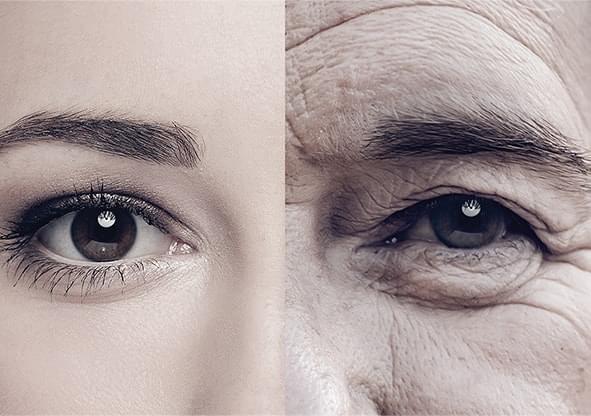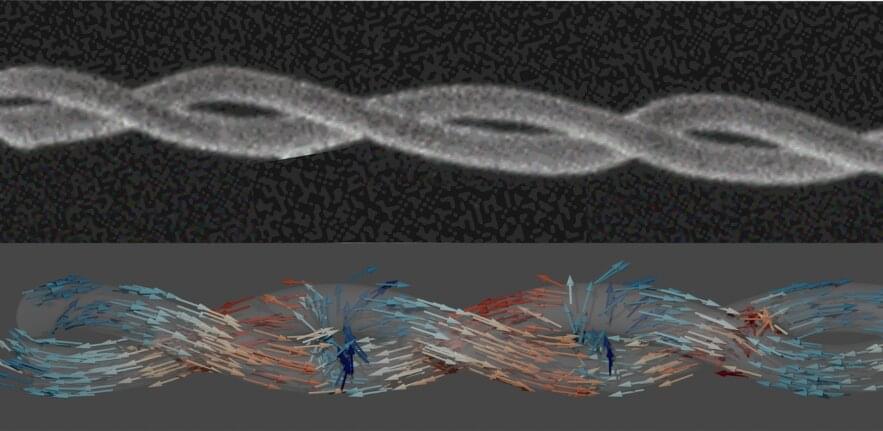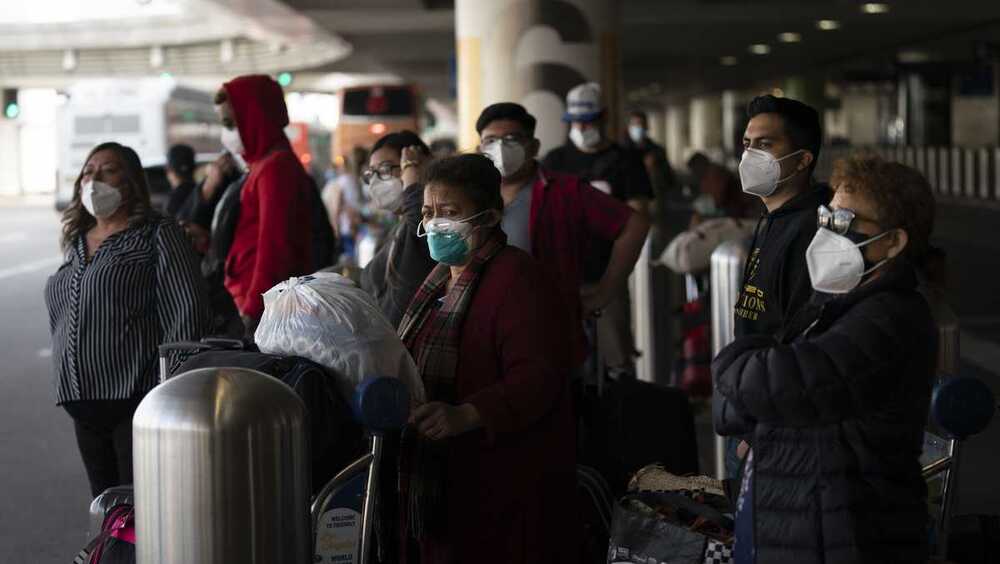Several strategies are being explored to halt or reverse the effects of aging.



Scientists have used state-of-the-art 3D printing and microscopy to provide a new glimpse of what happens when taking magnets to three-dimensions on the nanoscale—1000 times smaller than a human hair.
The international team led by Cambridge University’s Cavendish Laboratory used an advanced 3D printing technique they developed to create magnetic double helices—like the double helix of DNA—which twist around one another, combining curvature, chirality, and strong magnetic field interactions between the helices. Doing so, the scientists discovered that these magnetic double helices produce nanoscale topological textures in the magnetic field, something that had never been seen before, opening the door to the next generation of magnetic devices. The results are published in Nature Nanotechnology.
Magnetic devices impact many different parts of our societies, magnets are used for the generation of energy, for data storage and computing. But magnetic computing devices are fast approaching their shrinking limit in two-dimensional systems. For the next generation of computing, there is growing interest in moving to three dimensions, where not only can higher densities be achieved with 3D nanowire architectures, but three-dimensional geometries can change the magnetic properties and offer new functionalities.

(Bloomberg) — Amazon.com Inc.’s efforts to curry favor with the Chinese government included quieting criticism of President Xi Jinping’s book on its Chinese outlet, according to a Reuters report. Most Read from BloombergModerna’s Third Dose Boosts Antibodies Against OmicronS&P 500 Has Biggest Three-Day Drop Since September: Markets WrapBilly Joel NYC Show Going Ahead; Quebec Closures: Virus UpdateOmicron Becomes Dominant U.S. Strain With 73% of Covid CasesManchin Outlines Tax, Policy Changes He’
To solve the mysteries of how learning and memory occur, Johns Hopkins Medicine scientists have created a system to track millions of connections among brain cells in mice—all at the same time—when the animals’ whiskers are tweaked, an indicator for learning.
Researchers say the new tool gives an unprecedented view of brain cell activity in a synapse—a tiny space between two brain cells, where molecules and chemicals are passed back and forth.
“It was science fiction to be able to image nearly every synapse in the brain and watch a change in behavior,” says Richard Huganir, Ph.D., Bloomberg Distinguished Professor of Neuroscience and Psychological and Brain Sciences at The Johns Hopkins University and director of the Department of Neuroscience at the Johns Hopkins University School of Medicine.

Omicron has raced ahead of other variants and is now the dominant version of the coronavirus in the U.S., accounting for 73% of new infections last week, federal health officials said Monday.
The Centers for Disease Control and Prevention numbers showed nearly a six-fold increase in omicron’s share of infections in only one week.

After analyzing the data, researchers found that participants who underwent cataract surgery had nearly 30 percent lower risk of developing dementia compared with those who did not have the procedure. The study also found that the reduction of risk continued for at least a decade following surgery and was associated specifically with the lower risk of Alzheimer’s.
“This is really exciting because no other medical intervention has shown such a strong association with lessening dementia risk in older individuals,” Cecilia S. Lee, ophthalmologist and the study’s lead author, said in a statement.

Thyme and oregano possess an anti-cancer compound that suppresses tumor development, but adding more to your tomato sauce isn’t enough to gain significant benefit. The key to unlocking the power of these plants is in amplifying the amount of the compound created or synthesizing the compound for drug development.
Researchers at Purdue University achieved the first step toward using the compound in pharmaceuticals by mapping its biosynthetic pathway, a sort of molecular recipe of the ingredients and steps needed.
“These plants contain important compounds, but the amount is very low and extraction won’t be enough,” said Natalia Dudareva, a Distinguished Professor of Biochemistry in Purdue’s College of Agriculture, who co-led the project. “By understanding how these compounds are formed, we open a path to engineering plants with higher levels of them or to synthesizing the compounds in microorganisms for medical use.
And they’re faster than AI.
Researchers at Cortical Labs, a biotechnology startup, have successfully taught human brain cells in a petri dish how to play the 2D table tennis simulation video game “Pong”.
The team managed to create mini-brains consisting of 800,000 to one million living human brain cells in a petri dish, reports New Scientist. Regarding the unlikely study, Brett Kagan, chief scientific officer at Cortical Labs and research lead of the project, says We think… See more.
Advancing Veterinary Care With Predictive Diagnostics, AI & One Health Principles — Dr. Jennifer Ogeer, DVM, Antech Diagnostics, Mars Petcare, Mars Inc.
Dr. Jennifer Ogeer, DVM, MSC, MBA is Vice President of Medical Science & Innovation at Antech Diagnostics (https://www.antechdiagnostics.com/), one of the world’s largest reference laboratory networks, and a unit of Mars Veterinary Health (https://www.marsveterinary.com/).
Dr. Ogeer is also Chair of the Board Of Directors of Veterinarians Without Borders (https://www.vetswithoutborders.ca/), an organization that works with governments, educational institutions, non-governmental organizations, local communities, farmers’ groups, and international agencies, to tackle root-cause issues affecting public health, animal health and ecosystem health in developing communities around the world.
Dr. Ogeer is also Vice-Chair of the Diversify Veterinary Medicine Coalition (https://diversifyvetmed.org/) which is working to bring greater diversity to the veterinary profession.
Dr. Ogeer is a graduate of the Ontario Veterinary College (OVC), University of Guelph, Canada. She completed an emergency medicine/critical care residency at Tufts University/Angell Memorial Animal Hospital in Boston and a Master of Science degree in Critical Care at the Ontario Veterinary College. She also has completed an Executive MBA at Western University (Canada).

In spring 2020, shortly after the pandemic began, many scientists predicted that the coronavirus would not evolve particularly fast.
But those predictions have been upended time and again — and never more so than with omicron, a variant with an astonishing number of mutations that is rampaging through Europe and South Africa. In New York, cases are suddenly soaring to record levels as holiday parties and sports games are canceled, and California officials are bracing for a similar crisis in the coming weeks.
Once again, uncertainty and worry are rising. No one knows what the next Greek letter variants will unleash.